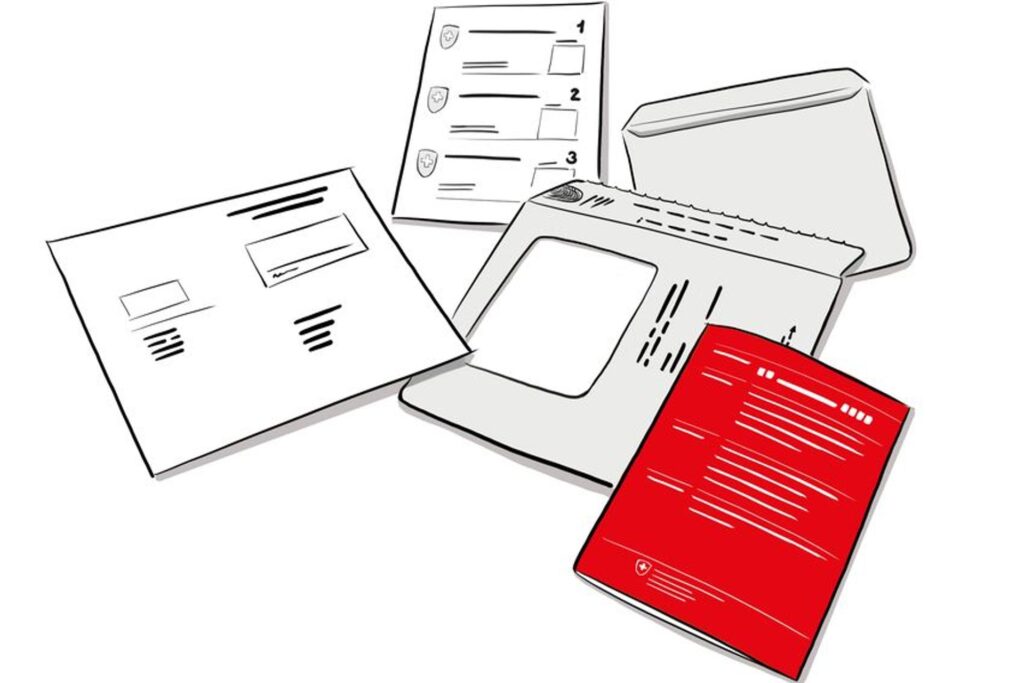In Switzerland three times “no” against the environmentalism of way
The Swiss rejected the initiatives on pesticides and water and the new CO2 law, while accepting the norm to fight terrorism and COVID aid.
The voting session of June 13 in Switzerland ended with a result of “two to three”, in full European Football Championship style, therefore with a defeat of the initiativists and, in particular, of the environmentalists.
The Swiss people rejected the two initiatives on pesticides and drinking water as well as the new CO2 law, while they accepted the regulation on police measures for the fight against terrorism as well as the legal basis for the management of the coronavirus pandemic.
The five topics on the ballot in Switzerland on June 13, 2021
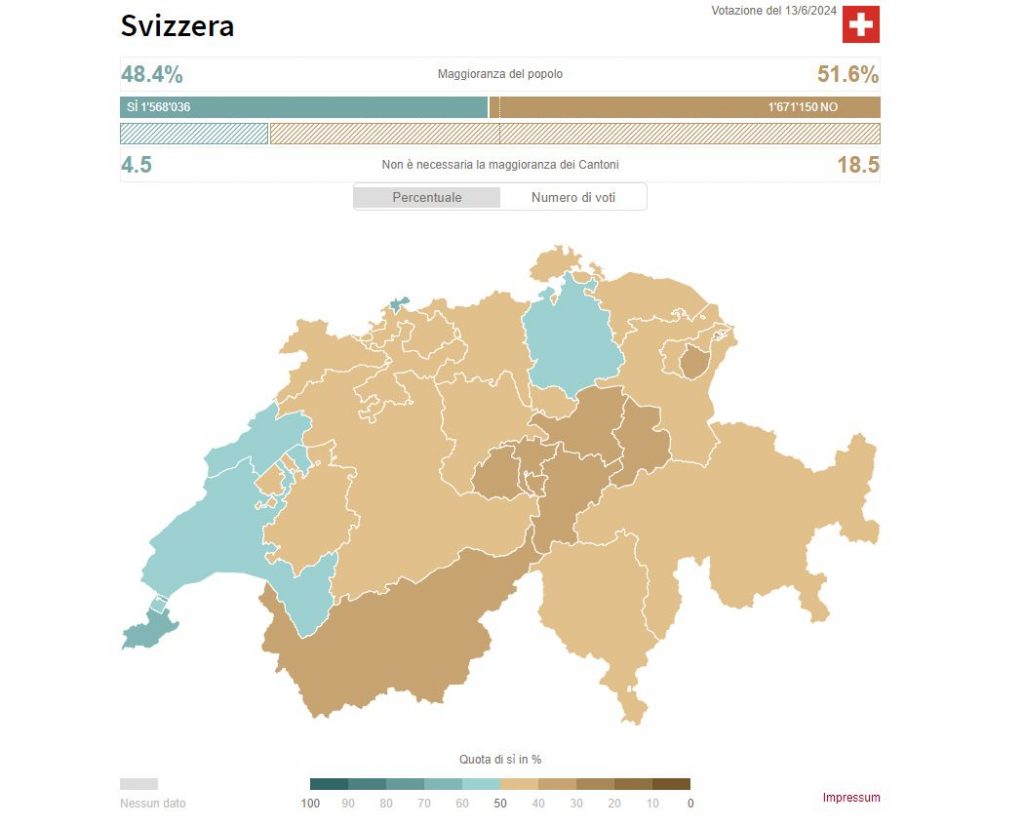
Greenhouse gases, rejected without appeal, especially in rural areas
After three years of debates in Parliament and a campaign that divided both the economic world and the climate movement, the new CO2 law was rejected at the polls.
This came as a bit of a surprise, considering the advantage of those in favor in the polls, especially since the text was rejected by 51.6% of voters.
It was the more rural cantons that tipped the scales. Participation in the vote was 58.9 percent of those eligible.
This is a victory for the oil and transport industry and above all for the Centre Democratic Union (UDC, conservative right), the only party to oppose the revision in parliament.
According to them, the new law was ineffective and excessively burdensome for citizens and companies: it would have cost the community and the economy between 30 and 40 billion francs and the additional burden for a family of four would have been at least 1500 francs per year.
The aim of the legislation was to halve Switzerland’s greenhouse gas emissions by 2030 compared to 1990, in line with the commitments made under the Paris Climate Agreement.
It was largely based on the “polluter pays” principle, with a redistribution of most of the taxes collected to the population and businesses.

Approved by Parliament in September 2020, the new law contained measures relating to road vehicles, air traffic, industrial emissions and building renovation.
It specifically provided for a tax of between 30 and 120 francs on airline tickets for flights departing from airports in the Swiss Confederation, an increase from 5 to 12 cents per liter in the surcharge that fuel importers would be able to apply to gasoline and diesel, and an increase in the CO2 tax on diesel fuel.
“The fact that an approval would have increased prices for those who move by car, for heating and vacations has been taken on board,” rejoiced SVP MP Mike Egger, adding that “a law with so many articles is far from liberal and cages the economy.”
Moreover, “the global influence of Switzerland, which has already done a lot for climate protection, is small,” he said.
Switzerland and the “fantastic four” of direct democracy
The ethics of competitiveness and the spirit of federalism
Today’s rejection was also welcomed by a section of climate activists. “The CO2 law was going in the wrong direction: it targeted the people and left out the big polluters,” Franziska Meinherz, of the referendum committee for a social ecology, commented to Keystone/ATS.
“The result shows that the population does not want measures that cause an increase in costs“, in everyday life, followed Meinherz, a member of the collective “Strike for the climate”.
“The law,” she added, “would define climate policy for ten years and Switzerland would continue on its current trajectory.”
In his view, “in order to achieve climate neutrality as early as 2030, as the collective calls for, action must first be taken in the sectors that generate the most emissions.”
In this regard, Franziska Meinherz cited car importers – Switzerland is the European country that proportionally buys more four-wheel drive vehicles from abroad – and the financial sector.
“The latter’s emissions are 22 times greater than those of the population and industry combined,” she pointed out.
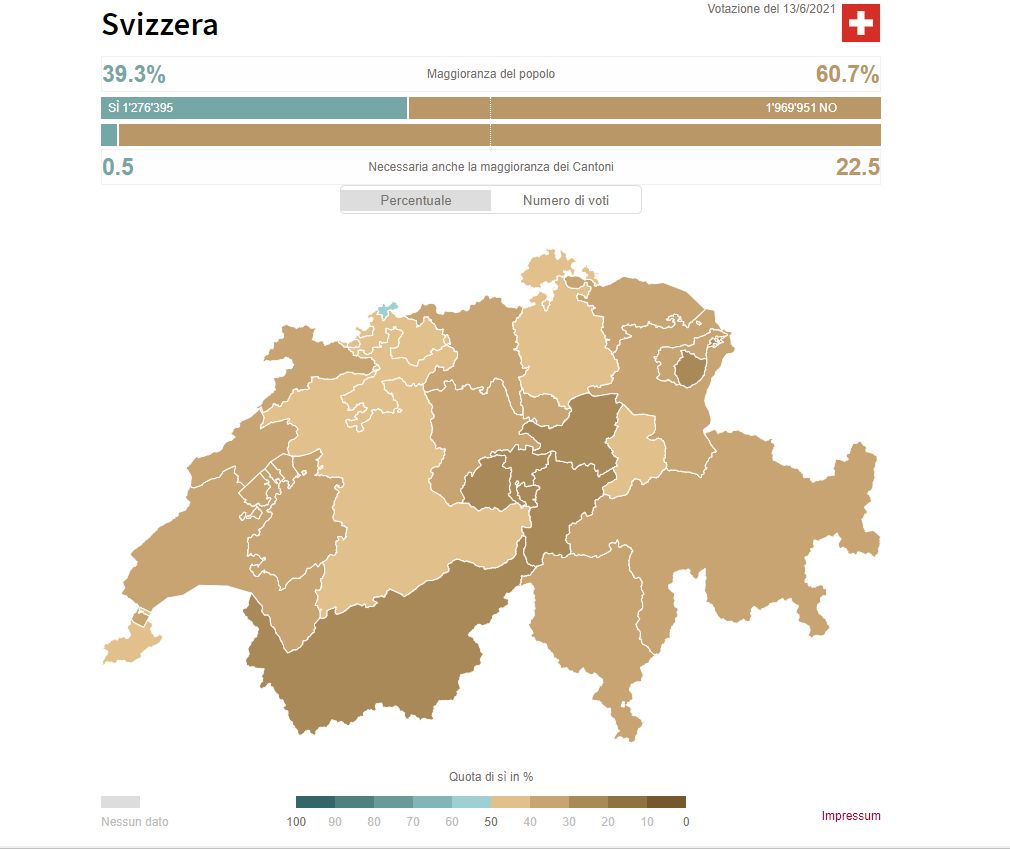
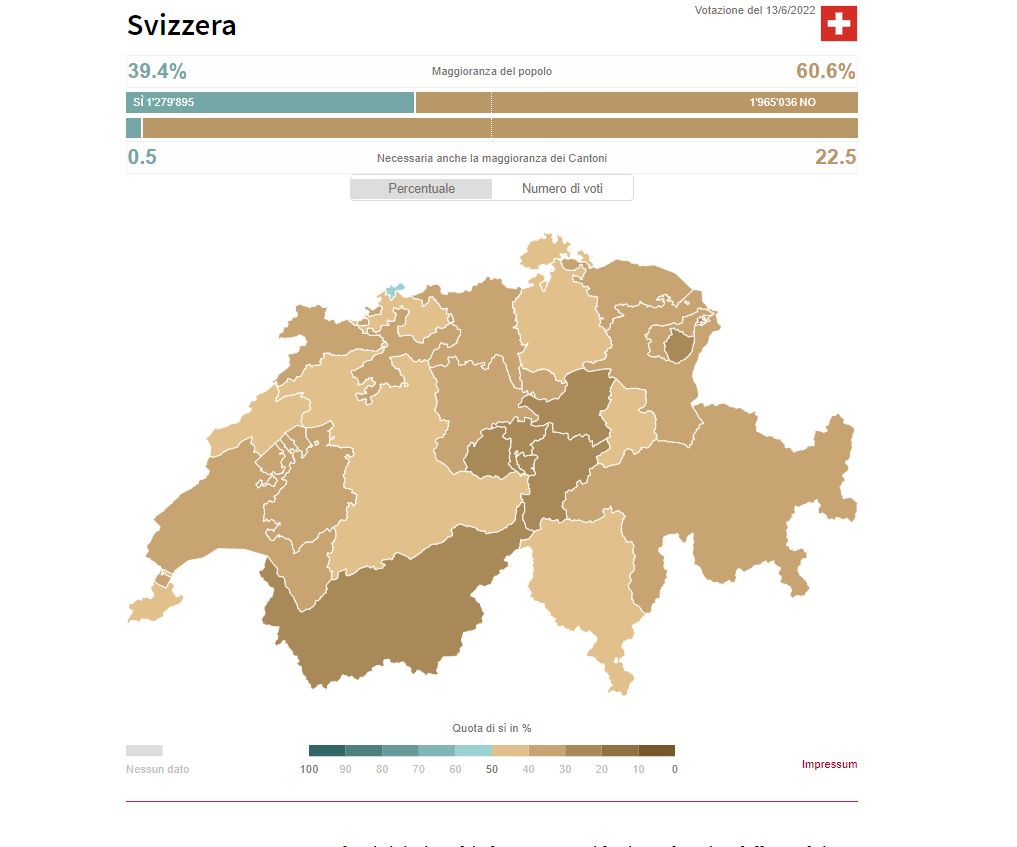
60 percent want to continue using plant protection products
The two initiatives to reduce and prohibit the use of plant protection products in agriculture have been officially rejected.
Neither of the two texts, judged by most to be too radical, was able to convince the majority of the population and the cantons without any margin of doubt.
This is a heavy blow for the promoters of the initiatives, both of which were rejected by a majority of over 60%.
In addition, since they are proposals to amend the Federal Constitution, the two texts required a double majority of the people and the cantons in order to be approved.
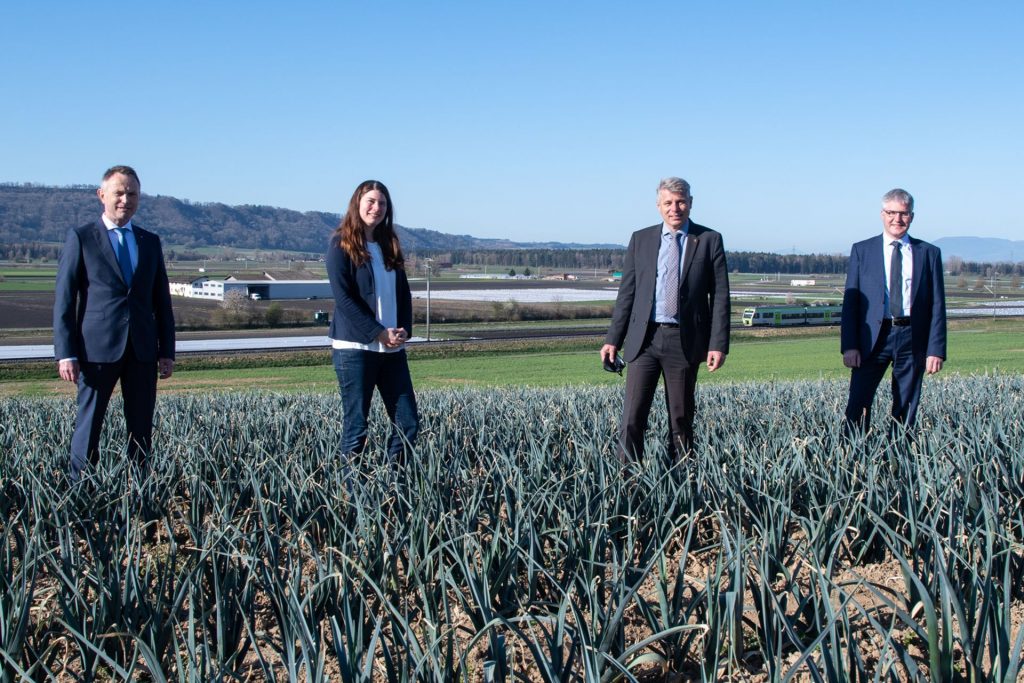
Out of 26 cantons, however, only Basel-Stadt came out in favor of the proposals, while all other states rejected them both, often unequivocally.
Geneva and Zurich were the only others with uncertain percentages (53.1 percent/50.7 percent drinking water, 50.7 percent/52.1 percent pesticides).
Waldstätte and the “forest” cantons at the dawn of Switzerland’s…
The presidency of the Swiss Confederation from 1848 to today
The last SRG SSR survey, conducted in mid-May by the gfs.bern Institute, found that 53 percent of respondents planned to reject the “Clean Drinking Water and Healthy Food” initiative and 51 percent the “For a Switzerland Free of Synthetic Pesticides” popular initiative.
The projections show that the mobilization for the “no” vote has gained momentum in the last period.
The proposals have also lost ground among Swiss abroad, university students and high-income families, who are generally among the biggest supporters of the initiatives.
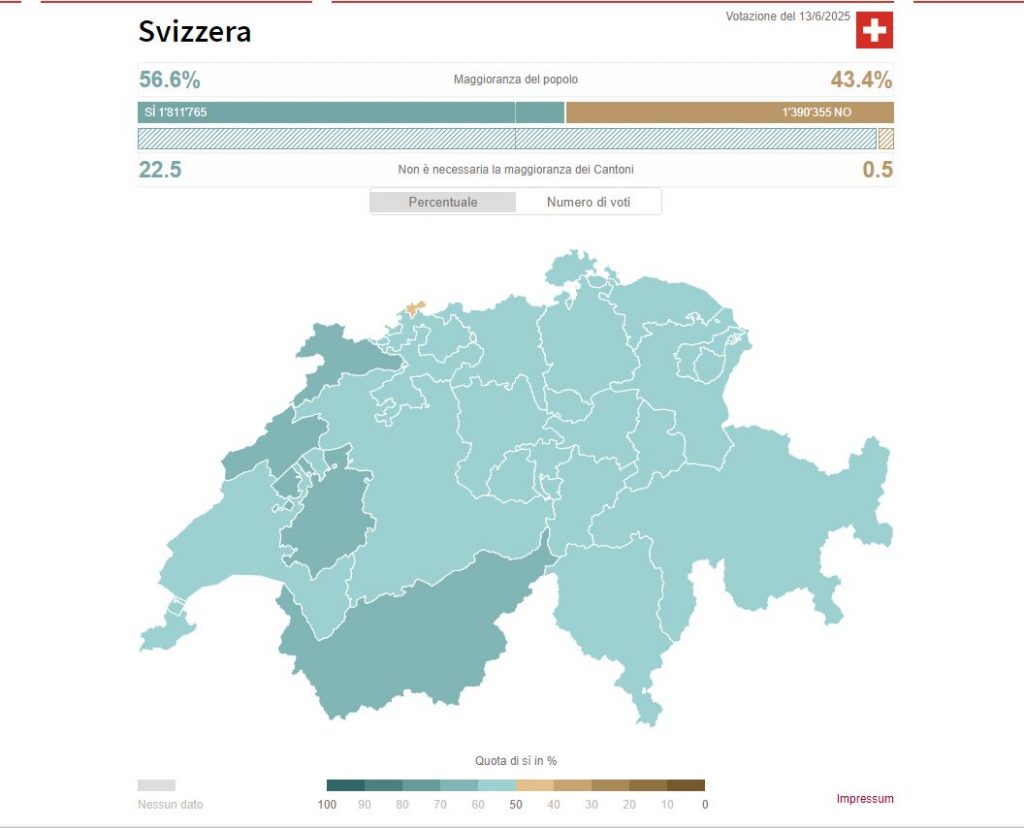
The fight against terrorism: “yes” it should have been and “yes” it was
The Federal Law on Police Measures to Combat Terrorism (MPT), fought in a referendum, was accepted by a majority of voters.
“Yes” it should have been and “yes” it was on Sunday, June 13 for the new Anti-Terrorism Law. Although losing speed in recent weeks (the last poll predicted a 62 percent favorable proportion), proponents of the revision won out with 56.6 percent.
Only in Basel-Stadt was the reform rejected, while in some cantons (e.g. Schwyz and Appenzell) it passed by a few votes.
The law was developed after the attack on the French satirical newspaper Charlie Hebdo in 2015, which prompted the Swiss government to launch a new strategy to combat terrorism.
The new rule will allow the Federal Office of Police (fedpol) to take a range of measures against an individual suspected of posing a threat, even if “there is insufficient evidence to initiate criminal proceedings.”
The measures covered are as follows: Obligation to participate in interviews; prohibition to have contact with other radicalized persons; prohibition to leave the country; prohibition to leave and enter specified areas; house arrest; imprisonment with a view to compulsory remand
In May 2019, fedpol had assured that these measures would only affect “a few dozen people.”
They can be imposed from the age of 12, except for house arrest, which will be applicable from the age of 15, and will also have a limited duration. Also with regard to house arrest, it will also require the endorsement of a judge.

“The law is not only directed against so-called terrorist threats: it can also be used to pursue legitimate political protest,” Patrick Walder, head of Amnesty International’s Swiss section, said in an initial reaction after the voting results.
In this regard, the Greens have indicated that they will present a parliamentary initiative to define more precisely the concept of terrorism included in the law. “A definition that,” argues Glarus ecologist Councillor of States Mathias Zopf, “should follow the one inserted in the Federal Law on Information Activities, which assumes a danger to life, physical integrity and freedom of individuals.”
Swiss monuments? A “hidden” treasure to be enhanced…
Athenian democracy? Revive between Glarus and Appenzell…
For those in favor, including the Government and the majority of Parliament, the law allows for gaps in the strategy to combat terrorism to be filled. “The measures currently possible, such as deradicalization programs, are not sufficient,” the Federal Council stressed in its information brochure.
Those in favor also argue that the new legal basis is compatible with fundamental rights, the European Convention on Human Rights and the relevant UN treaties.
#Votation du #13juin 2021: Le #PrésidentCH @ParmelinG au sujet du résultat de la votation sur les deux initiatives agricoles. (BK) @DefrWbf #vot21 #chvote pic.twitter.com/8KZbcBxvrs
— André Simonazzi (@BR_Sprecher) June 13, 2021
House arrest must be approved by a judge and all measures can be challenged in the Federal Administrative Court.
Mauro Tuena, National Councillor for the Centre Democratic Union, who acted as spokesman for the preparatory commission of the dossier, assured that the promises made during the campaign will be respected. “The law,” he recalled reacting to the result of the vote, “is designed to fight against terrorists and not extremists.”
However, he did not spare criticism to opponents, stating that thinking of overturning the result by challenging it in court shows lack of style and inability to lose.
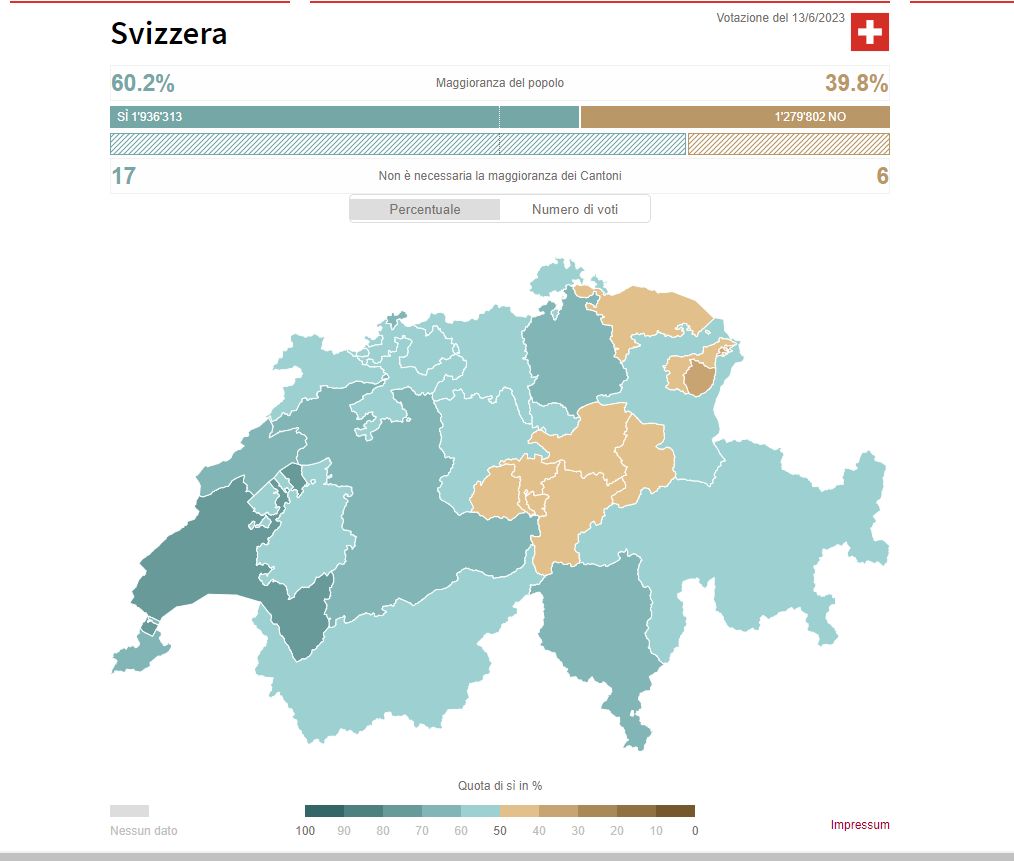
Coronavirus: people are on the side of aid to companies
The so-called COVID Law19 received broad support from the Swiss electorate with 60.2% “yes” votes.
The legal basis for pandemic management was put to the people in a referendum.
The Swiss people were the first people in the world to have a say in their authorities’ management of the health crisis. The measures introduced to cope with the pandemic and to economically help those affected by it were therefore equivocally approved by the electorate.
In the most recent SRG SSR poll, conducted at the end of May, 64% of respondents said they would vote “yes”.
The “no” vote is concentrated in the cantons of central Switzerland, plus Thurgau, Appenzell Innerrhoden and Appenzell Ausserrhoden, which have been the scene of several demonstrations against the restrictions introduced to contain the virus.
Last September, Parliament approved a law that gives a solid legal basis to the decisions taken by the government between mid-March and mid-June of the same year. These measures came into force without the usual intervention of the legislature.
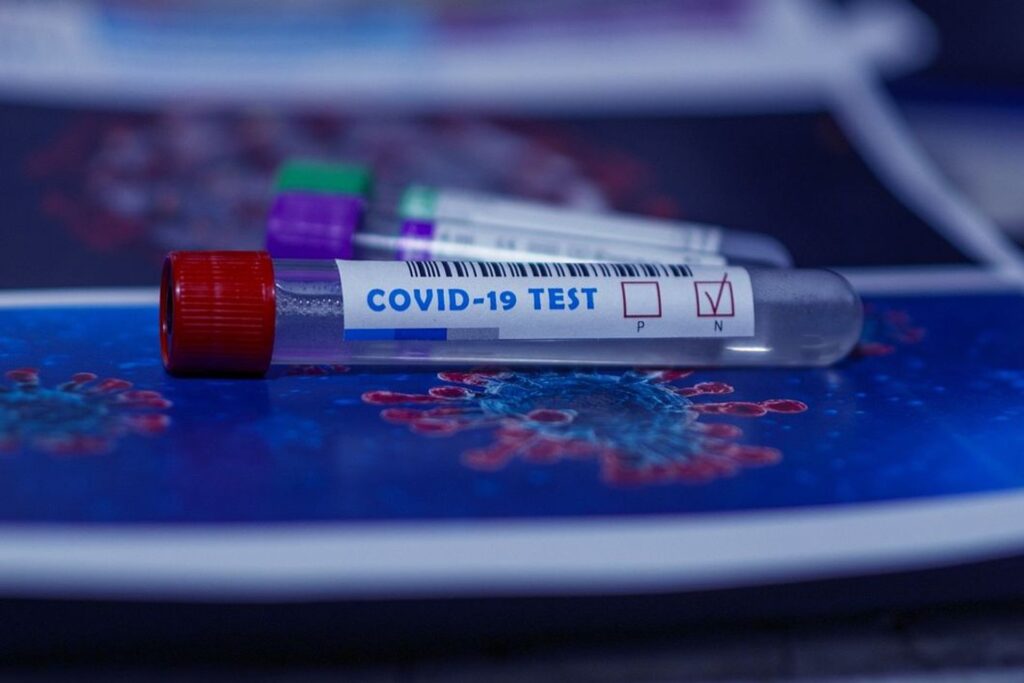
The measures, in fact, were not all covered by the law on epidemics and the executive adopted them as a matter of urgency on the basis of the Constitution, which allows the Government, in the presence of danger, to take measures by virtue of the right of necessity.
The latter is valid for six months beyond which, in order to extend the measures, a law must be drawn up. And this is what happened with the so-called COVID law19.
Several citizen committees, including the “Friends of the Constitution”, have subsequently opposed the text and have collected a sufficient number of signatures to submit the law to a referendum.
Opponents consider the law unnecessary, unfair, and discriminatory. They claim that most of the measures can be introduced without giving particular powers to the Government. It is precisely this aspect that worries the promoters of the referendum, who see it as a dangerous precedent that would allow the executive to impose an authoritarian regime.
The Europe of small states and a federalism barely sketched out…
Download the brochure “The Confederation in brief” 2021
They also criticize the too short time frame in which the law was drafted. While admitting that the law contains positive aspects, they consider that it also contains deleterious ones, such as aid to the media.
One side also protests what they consider to be “arbitrary” anti-COVID measures. The vaccination passport, for example, would discriminate against those who do not wish to be vaccinated.
None of Switzerland’s major political parties recommended rejecting the bill. The Centre Democratic Union (SVP, conservative right) has decided to leave freedom of vote to its electorate.
Schöner Erfolg für die Tourismusbranche: Das Stimmvolk sagt heute mit 61 Prozent JA zum #Covid19Gesetz. #CHvote #Abstimmungssonntag @jacovid19gesetz @GastroSuisseCH @hs_politik @voev_utp @SwissCableways https://t.co/WCm8WGeb7q
— STV FST (@STV_FST) June 13, 2021
Support for the COVID19 law has remained high and consistent since the beginning of the campaign despite the fact that opponents have been combative, denouncing the “deprivations of freedom” imposed by the government that would make the population “sick with fear“.
On the other hand, supporters have recalled that measures such as telework, closure of restaurants, schools and stores, as well as vaccination, have nothing to do with the COVID19 law, whose objective is, first of all, to regulate financial aid from which one million people and 100,000 companies benefit.
“The people’s ‘yes’ to the COVID19 law reassures those in favor about precisely the financial aid in the future.”
This was stated by Councillor to the States Philippe Bauer, of the Radical Liberal Party (FDP, right). The Swiss voted “wisely and effectively,” he said.
“With a ‘no’ vote, the text would have lapsed on September 30 and with it the aid, which will also be needed in the months to come,” the Neuchâtel parliamentarian pointed out.

He was echoed by the vice-president of the Socialist Party, National Councillor Barbara Gysi, according to whom “the ‘yes’ to the law can also be interpreted as a ‘yes’ to overcoming the crisis“.
The Swiss restaurant federation GastroSuisse welcomed the support for the text. “This yes that shows that the people do not want to let struggling companies sink,” emphasizes the organization’s president Casimir Platzer.
“Many employees and employers can breathe a sigh of relief,” reads a note from the economic committee “Yes to the COVID19 law” which, in addition to GastroSuisse, also brings together the Swiss Union of Arts and Crafts (USAM), the Swiss Tourism Federation, the Union of Public Transport and several other economic organizations.
The Swiss people and cantons abolish the burqa and the niqab
CO2 law: for Switzerland and the cantons it’s a go
The result does not discourage the Young UDC. The latter have announced that they will start a new collection of signatures for a referendum against the changes in the law dating back to March 19.
“In the event of a new referendum, we expect a ‘no’ vote on the COVID19 law, since those in favor will no longer be able to hide behind financial aid,” their president David Trachsel assured the Keystone-ATS agency.
The new collection of subscriptions has already obtained the support of the “Friends of the Constitution“, who expressed their satisfaction that the “very strong” campaign of the last months has awakened a good part of the Swiss people, despite the defeat at the polls.
Contacted by the agency Keystone/ATS, the co-president Werner Boxler assures that the “fight to restore the sovereignty of the people” is only at the beginning.
(Source: swissinfo.ch)
